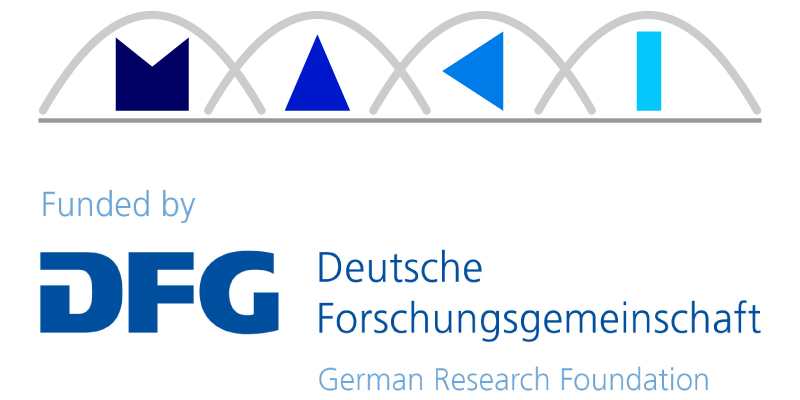| Vortragender | Gek Hong Sim |
| Titel | Algorithm Design for Scheduling and Medium Access Control in Heterogeneous Mobile Networks |
| Zeit | Montag 07.12.2015, 13:30 – 14:45 Uhr |
| Ort |
S4|14, 4. OG (Mornewegstr. 32) Raum 4.3.01, 64283 Darmstadt |
|
Abstract |
|
|
The rapid growth of mobile devices leveraging the wireless communication has led to saturation and congestion of wireless channel. As a result, new scheduling algorithms should be in place for more efficient utilization of the scarce wireless resources. To this aim, we investigate the challenges and the important considerations in designing schedulers and medium access control mechanism to improve the performance of wireless networks. The first step towards efficient utilization of the wireless channel is to avoid unicast transmissions of the same content to mobile users in proximity. Unlike unicast scheduler where the base station sequentially serves the individual user, multicast scheduler aims to simultaneously serve multiple users. While being more efficient than unicast schedulers, multicasting is a challenging task when the channel qualities of the multicast group is heterogeneous. Since all multicast users are served at a single rate, the core problem lies in the selection of users which ensures high rate and low delay for all multicast users. Most of the available solutions aim to maximize the instantaneous multicast throughput. These solutions may successfully ensure long term throughput but they suffer from low fairness among the multicast users – users with good channel quality receive the data block sooner than those with bad channel quality. Addressing this issue, we propose schedulers capable to trade off between instantaneous throughput gain and guarantees both short- and long-term fairness. In a global effort to resolve the capacity issue in wireless networks, companies are capitalizing on the ultra-wide bandwidth at Millimeter Wave (mm-Wave) frequency (i.e., 60GHz). However, the technologies leveraging mm-Wave face new challenges in designing schedulers and medium access control protocols. To achieve high throughput and compensate for the severe signal at- tenuation experienced by the mm-Wave communication, directional transmission is inevitable. With directional communication, failure in channel sensing (identifying whether the medium is busy or not) may occur and lead to a problem commonly known as the deafness problem. This problem critically impairs the IEEE 802.11 contention-based access mechanism. Recent mobile devices come with multiple wireless interfaces, thus mm-Wave carrier sensing can leverage the omni-directional transmission at the microwave band for control messages. Precisely, mm-Wave band can be exclusively used for high speed data transmission. In addition, the deafness problem also complicates the distribution of global network information in mm-Wave communications. Our solution to this problem is to determine the channel access time through learning techniques. |
|
|
Bio |
|
| Gek Hong Sim is currently a Ph.D. student in University Carlos III and affiliated with IMDEA networks Institute, Madrid, Spain. Gek Hong received her Bachelor Degree (Engineering majoring in Telecommunication) and first Master Degree (Engineering Science) from Multimedia University, Malaysia in 2007 and 2011, respectively. She was awarded with Master Degree in Telematics Engineering from University Carlos III Madrid in 2012. She was working on multicast networks and currently focusing on the design and optimization for scheduling and medium access control for 60GHz communication. | |
SFB 1053 MAKI

Gek Hong Sim
Gek Hong Sim
The content of this page is only available in German.
Please go to German version of this page



